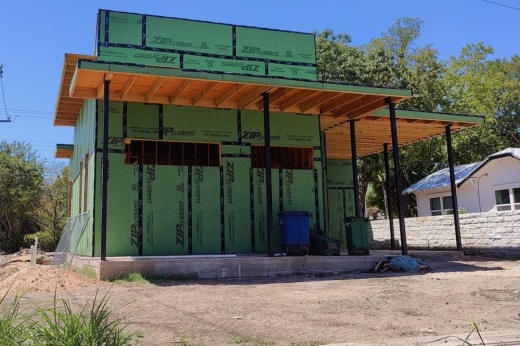The details
The outline brought by council member José Velásquez could lead to the creation of a city program offering down payment assistance for those wanting to either build a home or renovate their house to include additional units.
The framework advanced with the passage of Velásquez's resolution Dec. 14. In addition to detailing the down payment plan itself, that measure also called for:
- Engagement with Austinites, particularly residents facing displacement, on the program's development
- Marketing the program to homeowners in areas at a higher gentrification risk
- Creating at least one Development Services Department staff position to assist residents with navigating the potential program
- Limiting short-term rental properties from participating in the financial program
- Complying with anti-displacement initiatives tied to the Project Connect transit plan
Now, city staff will explore options for the program's creation and return to council with more details by mid-March.
The context
The attempt to make additional housing construction more accessible to lower-income Austinites followed council's controversial update to residential development rules through Phase 1 of the "HOME" initiative. Up to three housing units are now allowed on most of Austin's single-family property, while a second phase coming next year could slash the amount of land required to build a home.
Velásquez's proposal was co-sponsored by council members Natasha Harper-Madison, Vanessa Fuentes and Chito Vela, who said the financial assistance program would end up supporting low- and moderate-income families wanting to take advantage of HOME allowances.
“The truth of the matter is homeownership is expensive, and there are so many parts of homeownership that you really just don’t know until you know it. I think the financial assistance component is always going to be necessary for some segment of new homebuyers, especially," Harper-Madison told Community Impact. "There are folks who own their homes outright in the Eastern Crescent who are losing their properties because they can’t keep up with the taxes.”
Diving in deeper
Council's action in December follows other attempts in recent years to make it easier for Austinites to add smaller new housing units on their property.
In 2020, former council member Kathie Tovo authored a resolution aimed at streamlining the development of residential accessory dwelling units, or ADUs, with a stated goal of growing low- and middle-income housing options.
That document noted the financing challenges often experienced by those seeking to add such housing, and called on city staff to find ways to offer low-interest loans, grant funding or tax breaks for ADU builders. City staff offered several recommendations based on that council request in 2021.
Later that year, another Tovo resolution aimed at making ADU development simpler and more accessible was also approved by City Council, although not all requests from that measure have been completed.
In 2020 & 2021, Council passed my resolutions to create loans to help low-income Austinites construct granny flats & to make it easier to build these citywide. Big thanks to @joseforatx for following up to direct staff to create loan programs. I hope this time will be the charm! https://t.co/qhzH5nWcIN
— Kathie Tovo (@kathietovo) December 15, 2023





